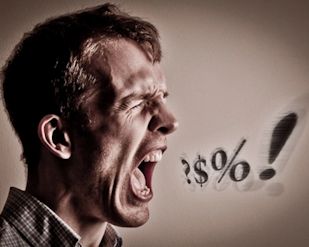 Defense lawyers are arguing that the administration’s across-the-airwaves comments are hurting their clients’ chances at a fair trial.
Defense lawyers are arguing that the administration’s across-the-airwaves comments are hurting their clients’ chances at a fair trial.
By Erica Orden
President Donald Trump is deploying the Justice Department to punish and prosecute his perceived enemies and advance his political agenda. But his color commentary — and that of senior members of his administration — about the cases is threatening to derail them in court.
Public comments by Trump and high-ranking officials including Attorney General Pam Bondi and Homeland Security Secretary Kristi Noem have already become flashpoints in high-profile cases. Judges overseeing criminal proceedings against Luigi Mangione, charged with the murder of UnitedHealthcare CEO Brian Thompson, and Kilmar Abrego Garcia, the Salvadoran man who was illegally deported by the Trump administration, have warned the administration to stop making remarks that could prevent the defendants from having fair trials, or have suggested they may already have violated rules against doing so.
In two other criminal cases — against former FBI Director James Comey and against alleged Charlie Kirk shooter Tyler Robinson — remarks by Trump and others are all but certain to show up in court filings as the defendants argue their cases should be thrown out. The defense lawyers in all four cases would need to convince the judges that the comments prevent their clients from receiving a fair trial because potential jurors have been prejudiced.
And as the Justice Department, at Trump’s urging, pursues the potential prosecution of Trump foes Letitia James, Sen. Adam Schiff (D-Calif.), John Bolton, John Brennan and others, Trump’s tendency to proclaim the guilt of an unconvicted defendant or publicly pressure prosecutors to bring charges will likely continue to create significant legal headaches.
Still, it is exceedingly uncommon for a case to be thrown out due to prejudicial comments, although there are lesser steps, such as gag orders, that judges can impose to try to create a fair environment for defendants.
“It’s just one more example of how this administration has eliminated a dividing line between politics and law,” said Stephen Gillers, a professor at New York University law school who specializes in legal ethics. The Trump administration, he said, is “treating these prosecutions as a political issue as well as a legal issue, and they’re willing to make statements that ordinarily occur in a political dispute in the context of court action because they see it in the same category.”
A spokesperson for the Justice Department declined to comment.
In the case against Mangione, the judge has rebuked the Justice Department over comments by Trump, Bondi and a spokesperson for the department, Chad Gilmartin. U.S. District Judge Margaret Garnett said their comments may have violated rules that prohibit out-of-court statements that interfere with a fair trial.
Trump told a TV interviewer of Mangione that “He shot — he looked like a pure assassin. … He shot him right in the middle of the back. Instantly dead. And now he’s like, I’m watching the girls going crazy for him.”
A day later, Gilmartin, in a since-deleted X post, re-posted a clip of Trump’s remarks and wrote: “@POTUS is absolutely right. In April, @AGpambondi took action and directed federal prosecutors to seek the death penalty in this case.”
And in a separate TV interview, Bondi said, “I was a capital prosecutor. I tried death penalty cases throughout my career. If there was ever a death case, this is one.” She added that “I was receiving death threats for seeking the death penalty on someone who is charged with an execution of a CEO.”
Mangione’s lawyers contend that her comments “make Mangione seem dangerous to the country and menacing to the Attorney General.”
Mangione’s lawyers have asked Garnett to toss the indictment over the remarks or to preclude the government from seeking the death penalty, calling Bondi’s comments in particular “fatally prejudicial.”
“Such language about a defendant and the existential structural risk to society he presents would be prejudicial coming from anyone,” his lawyers wrote. “Issued repeatedly and publicly by the nation’s highest law enforcement official, while a grand jury was hearing evidence, these statements are fatally prejudicial in this death penalty case.”
Garnett, a Biden appointee, ordered prosecutors to advise Deputy Attorney General Todd Blanche and other officials that future violations could result in sanctions, including personal financial penalties, contempt of court findings or “relief specific to the prosecution of this matter.”
By Wednesday, she ordered, officials in the Manhattan U.S. attorney’s office, which is prosecuting the case, must file a letter explaining how comments by Bondi and others occurred, detail “what steps are being taken to ensure that no future violations occur” and confirm that the judge’s order has been communicated to Blanche.
Abrego contends both that public statements from government officials are threatening his right to a fair trial and that his indictment should be dismissed on the grounds of vindictive and selective prosecution, and he has won incremental victories in both fights.
On Friday, the judge overseeing his case, U.S. District Judge Waverly Crenshaw, concluded that there is a “realistic likelihood of vindictiveness” in the government’s prosecution of Abrego. “Just because actual vindictiveness is a high bar, however, does not mean that it is never satisfied,” Crenshaw wrote.
The judge granted him discovery and an evidentiary hearing.
In late August, Abrego asked Crenshaw to order Bondi and Noem to stop verbally attacking him as his criminal trial on immigrant smuggling charges approaches.
It was the third time defense attorneys had lodged similar complaints.
“Further intervention from the Court is necessary to protect Mr. Abrego’s right to a fair trial and the integrity of these proceedings,” Abrego’s attorneys said. “The government’s ongoing barrage of prejudicial statements severely threaten — and perhaps have already irrevocably impaired — the ability to try this case at all — in any venue.”
Ordered by Crenshaw to explain whether they’ve complied with rules prohibiting prejudicial comments, prosecutors on Friday told the court that government attorneys working on the case had made no public comments since the start of proceedings, but excluded any mention of remarks by senior government officials.
Watch: The Conversation
55:05
'They're causing real harm': Kevin Hassett on the Dems' shutdown standoff
Though Trump’s comments about these cases may be the most visible, it is remarks by Bondi or other Justice Department officials that may have the greatest chance of jeopardizing them in court, said former federal prosecutor Martin Bell.
“The chance of there being some sort of fallout is amplified when you’ve got actual DOJ officials who are theoretically closer to the charging decisions and closer to knowledge of the evidence making these undisciplined statements,” Bell said. “As much as the president is the president, those types of statements may strike a judge as being even more problematic.”
It is rare, though not unprecedented, for a judge to chastise or take concrete steps to either punish a prosecutor or provide a remedy related to the prosecution of a case in response to out-of-court statements. In 2015, U.S. District Judge Valerie Caproni scolded then-Manhattan U.S. Attorney Preet Bharara for a “media blitz” he conducted in the wake of corruption charges against a high-level New York elected official, Sheldon Silver.
At a press conference the day of Silver’s arrest, Bharara told reporters that “the greedy art of secret self-reward was practiced with particular cleverness and cynicism by the Speaker himself.” In an MSNBC interview, Bharara said of Silver: “You see somebody who has basically sold his office to line his pockets.”
In his comments, the judge wrote, Bharara “strayed so close to the edge of the rules governing his own conduct that Defendant Sheldon Silver has a non-frivolous argument that he fell over the edge to the Defendant’s prejudice.”
But the Obama appointee denied Silver’s effort to dismiss the indictment, saying there wasn’t substantial evidence that the comments influenced the grand jury’s decision to indict.
The Comey case is in its early days, but his lawyers are likely to seize on the extraordinary public pressure Trump put on Bondi to bring charges against the former FBI director. In a social media post, Trump admitted to installing his former lawyer as a top prosecutor in order to engineer the indictment and suggested the charges would settle the score in the wake of his own criminal cases.
And in the days since Comey was indicted, Trump has repeatedly called him a “dirty cop” and proclaimed his guilt.
“HE LIED! It is not a complex lie, it’s a very simple, but IMPORTANT one,” Trump wrote on Truth Social. “He knew exactly what he was saying, and that it was a very serious and far reaching lie for which a very big price must be paid!”
Though getting an indictment dismissed based on “selective or vindictive” prosecution is rare, Comey may have an unusually strong argument to attack his indictment on that basis.
As for Robinson, he currently faces state charges in Utah for allegedly killing Kirk, though Bondi has indicated federal charges may be forthcoming. Bondi has called Robinson a “horrible human being.”
Trump said of Robinson: “I hope he’s going to be found guilty, and I hope he gets the death penalty. What he did — Charlie Kirk was the finest person and he didn’t deserve this.”
At a pretrial hearing late last month, Judge Tony Graf signed an order instructing both prosecutors and defense counsel not to make any statements outside the courtroom that could potentially prejudice the jury pool.
“Let me be clear, I will not put my finger on the scale of justice,” Graf said.
He added: “Counsel, regardless of who is watching, whether it is the nation or a single individual, we must fulfill our roles with integrity, civility, and diligence.”



























